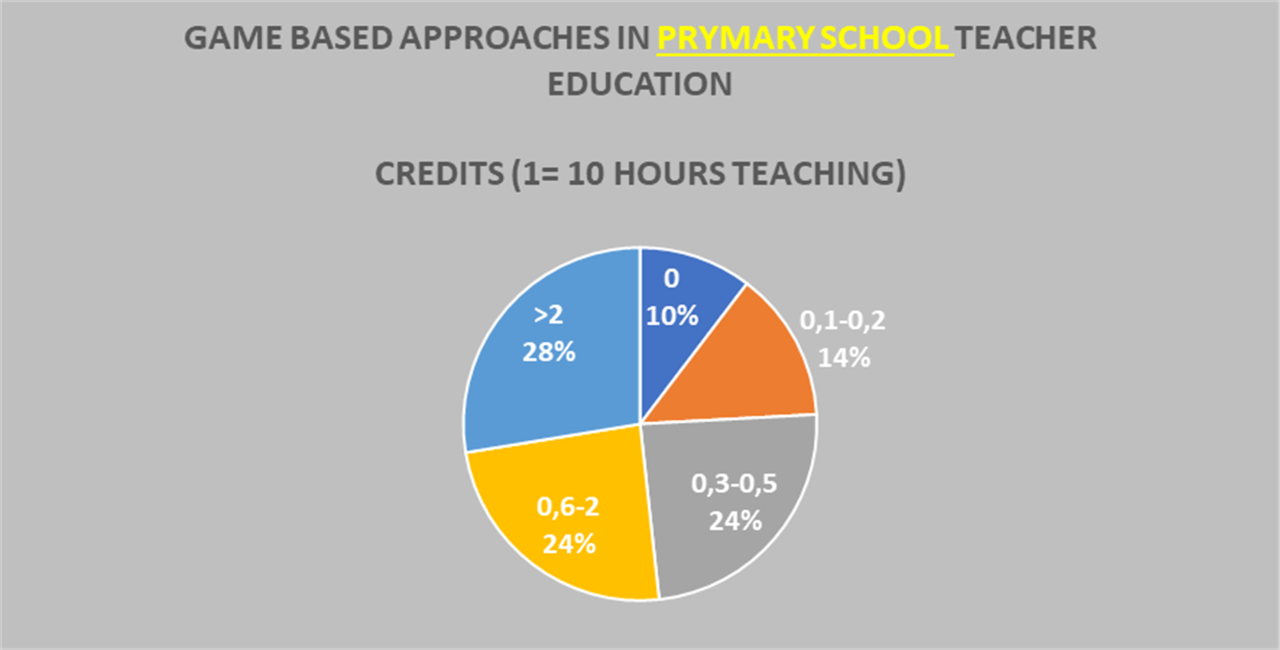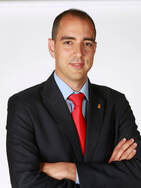|
In Spain, there are several academics interested in TGfU and other pedagogical models, such as sport education (Luis M. García-López - https://blog.uclm.es/luismiguelgarcia/ and David Gutiérrez - @Davi4_Gutierrez), cooperative learning (Javier Fernandez-Rio - @javier_rio1), an approach based on self-made materials (Antonio Méndez-Giménez - @mendezantonio97), the adventure education model (Antonio Baena Extremera - @abaenaextrem), and the attitudinal model (David Hortiguela-Alcalá - @dhortiguela1 and Ángel Pérez-Pueyo - @Angel_P_P_Pueyo). Most of us are working in a network financed by the Spanish Government through the Consejo Superior de Deportes under the name of "Red Internacional de Investigación en Educación Física y Promoción de Hábitos Saludables" (https://edufisaludable.com/), in which there is a line of work on pedagogical models. In particular, on TGfU, the team led by Alexander Gil-Arias (@agilarias), from Universidad Rey Juan Carlos, is working on the hybridisation of models (TGfU and Sport Education, mainly). From the Universities of Zaragoza and Extremadura, they are analysing the effect of several pedagogical models and TGfU on pshycological and socio-affective variables (e.g., Luis García-González - @LGarciaGonzale2, David Sánchez-Oliva - @Dsanchezoliva, Francisco M. Leo-Marcos - @FranLeoMarcos). The research team headed by Sixto González-Víllora (@SixtoGonzalezV), from the University of Castilla-La Mancha, is studying the effect of TGfU on sport performance, game involvement and physical activity. David Gutiérrez (@Davi4_Gutierrez) and Luis M. García-López, also from the University of Castilla-La Mancha, are working on developing the TGfU Video Tutorial Library in order to spread TGfU around the world and empowering children from socially vulnerable backgrounds through the use of roles in sport education. The research group, which responsible is José L. Arias-Estero, is exploring the effect of TGfU on physical activity, tactical learning, game performance, game involvement, psychosocial variables, and COVID-19, in elementary Physical Education and youth sports. They are trying to develop guidelines for helping teachers and coaches to apply TGfU. They have adapted TGfU for teaching non-traditional games as sailing.
According to the results reported by García-López et al. (2019, https://doi.org/10.1080/17408989.2019.1628931): “Central Spanish Physical Education (PE) teachers reported not using the ‘full version’ of the TGfU model. The teachers believed using five of the six main features of TGfU worked best to achieve student learning in their current teaching context: (a) games as a pedagogical method, which promotes interaction between the teaching of technical skills and tactical awareness; (b) game modification; (c) questioning; (d) organization of lessons, units and the broader curriculum using tactical complexity; and, (e) use of thematic approach to games teaching. Results from logistic regression analyses indicated that the strongest predictors of whether Central Spanish PE teachers were likely to be teaching games in PE through TGfU were their use of tactical complexity as a way to organize their curriculum content progressions and the use of questioning. Finally, teachers incorporated the key features of TGfU into their games teaching practice more than PS teachers. In conclusion, Central Spanish PE teachers perceive the utility and quality of key features of TGfU differently, resulting in various pragmatic forms of TGfU in school PE”. Regarding the presence of TGfU in the curricula of education faculties (Figure 1), 10% of curricula include 0 credits, 14% include 0.1-0.2 credits, 24% include 0.3-0.5 credits, 24% include 0.6-2 credits, and 28% include more than 2 credits (Gutiérrez, 2019, Impact of didactic models in the teaching of sport, Conference at the VI International Congress of Physical Education, Mallorca). Similarly, several Spanish primary and secondary school curricula reference the importance of using TGfU in Physical Education. Figure 1. Presence of TGfU in the curricula of Spanish education faculties.
National organizations responsible for promoting and supporting Physical Education in schools and the wider community:
- The national organization named “General Council of COLEF and CAFD” involves Physical Education and Sports teachers in Spain (college graduates). The organization integrates the autonomous colleges in the different Autonomous Communities in Spain. Therefore it covers the entire country. It is also linked to “The European Association for Physical Education (EUPEA)”, an umbrella organization that brings together European associations of Physical Education (http://www.consejo-colef.es). - Spanish Federation of PE teachers (Federación española de docentes de Educación Física). This organization groups fourteen regional federations of PE teachers. It has a pedagogical character, including between, recycling, exchange of experiences, publications, the organization of meetings, conferences, workshops etc. (http://www.feadef.org/index.html). - The national government´s website for school sport. It involves students from the different schools all around Spain. These activities take place in the schools through the various councils, sports clubs and sports federations under different forms of regulation and organization. The main objective is to contribute to a better formation of the person teaching the students the value of cooperation and teamwork (http://www.csd.gob.es/csd/competicion/05deporteescolar/1introducciondepescolar/) Journals in Spain to promote TGfU: - “Agora para la Educación Física y el Deporte”. https://revistas.uva.es/index.php/agora - “Apunts. Educación Física y Deportes”. https://revista-apunts.com/ - European Journal of Human Movement. https://www.eurjhm.com/index.php/eurjhm - “Cultura, Ciencia y Deporte”. http://www.ucam.edu/ccd - “RICYDE. Revista Internacional de Ciencias del Deporte / International Journal of Sport Science”. http://www.cafyd.com/REVISTA/ojs/index.php/ricyde - “Revista Española de Educación Física y Deporte”. http://www.consejo-colef.es/publicaciones/revista-reefd.html - “Retos”. http://www.retos.org/nuevo.html -“Tandem”. http://tandem.grao.com/revistas/tandem |
SpainIAB MembersNational OrganisationsTGfU EventsJournals |








